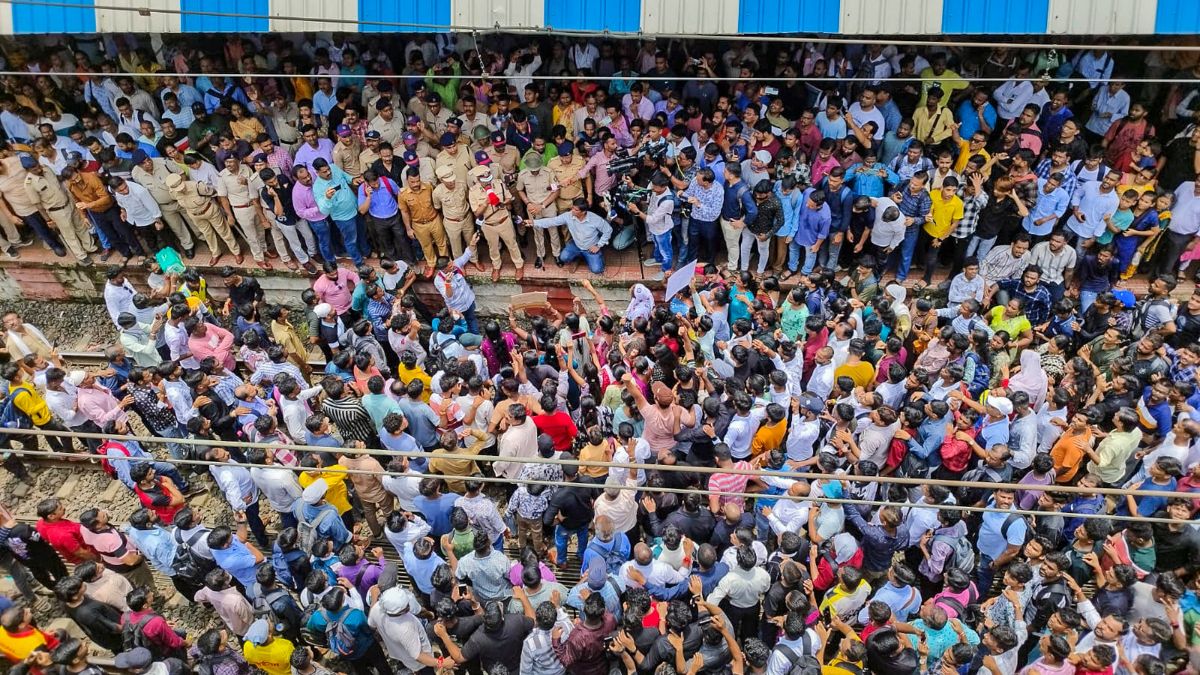Following the public outcry and protests in Mumbai's Badlapur on Tuesday, which came on the heels of a distressing incident where two four-year-old girls were sexually assaulted inside school premises by a male cleaning staff, the state education minister Deepak Kesarkar has issued new safety guidelines for school students. It was formalized through a government resolution (GR) released on Wednesday evening.
The GR mandates all private schools to install CCTV cameras as part of a broader effort to tighten security and safety measures inside academic institutions. Shockingly, barely two days after the Badlapur incident, another incident on similar lines came to light from Akola in Maharashtra, where six school girls complained of being sexually harassed by their male teacher inside school premises. The girls charged their teacher would force them to watch porn and sexually abuse them repetitively.
The schools, both in Badlapur and Akola, lacked basic security measures, including the installation of CCTV cameras inside school premises. It is against this backdrop that we ask the question whether schools should be charged under the stringent POCSO (Prevention of Children from Sexual Offences) Act if such incidents take place inside school premises.
" Yes", says cyber expert Debarati Halder. "In a way, schools are already under the POCSO Act, because the Act very clearly mentions about institutional rape. That means, if within school premises anybody including the teacher or a caregiver commits sexual assault or rape, not only the person committing the crime, but the principal and the school management will also be held responsible because they function as quasi-guardians."
It is the primary responsibility of any school, be it private or public, to install CCTV cameras inside its premises, its non-teaching staff must undergo mandatory and regular background checks and committees must be formed to address issues of sexual assault, sexual harassment and others pertaining to the safety and security of students.
Kesarkar announced the mandatory establishment of Vishakha Committees in all schools and the creation of Sakhi Savitri Committees dedicated to student safety. But how do parents of kids who have undergone the trauma find redressal? What are their options? What do they do next after finding out that the school covered up the incident before it came to light?
Halder says, "First and foremost, parents should immediately opt for medical and legal aid as per both the POCSO Act and Bharatiya Nyay Sanhita. Second, do not terminate the child's academic year by taking him or her out of the school. Rather, as parents, make sure that the people from the school responsible for causing harm to the child, have been immediately suspended/expelled from the school.
“Parents will not be wrong to demand this. If the threatening from the school continue, and the child continues to feel unsafe in the school and if the child's identity is revealed outside the school in any way, parents can take legal action against the school by approaching the district magistrate; they can also file a writ petition, seek an injunction that neither should the child's identity be revealed nor his or her education by hampered in any way. I would never advise the parents to send the child abroad or change his or her school within India, because that will add further trauma to the youngster. It should be done only if the child feels extremely uncomfortable in his or her present school,” Halder said.
POCSO Act
The Government of India enacted The Protection of Children from Sexual Offences (POCSO) Act in 2012. It is a special law that treats everyone under the age of 18 as a child and lays down stringent punishment for anybody who commits sexual abuse or sexual assault against a child.
As per the POCSO Act, any form of sexual abuse or sexual assault ranging from usage or storage of pornographic material involving a child to non-physical sexual activities, aggravated sexual assault and aggravated penetrative sexual assault are criminal offences. The punishment can range from three years of imprisonment. A notable provision of the law is that it considers failure to report a case punishable. Punishment for this is six months of imprisonment or fine or both.



